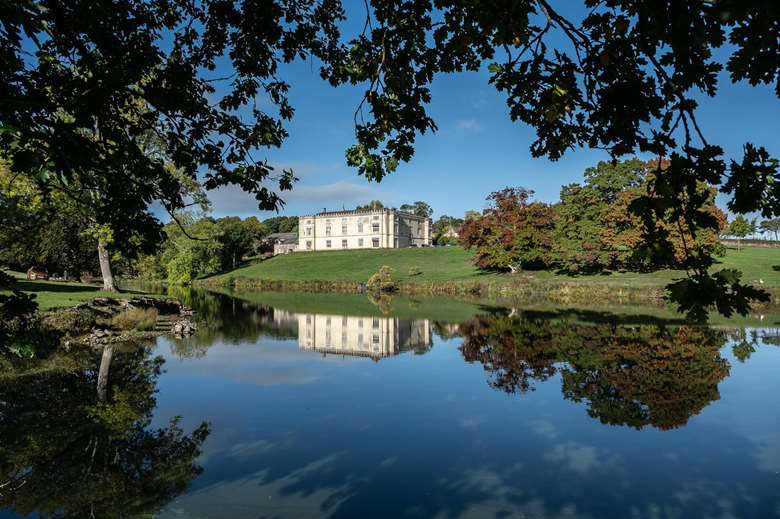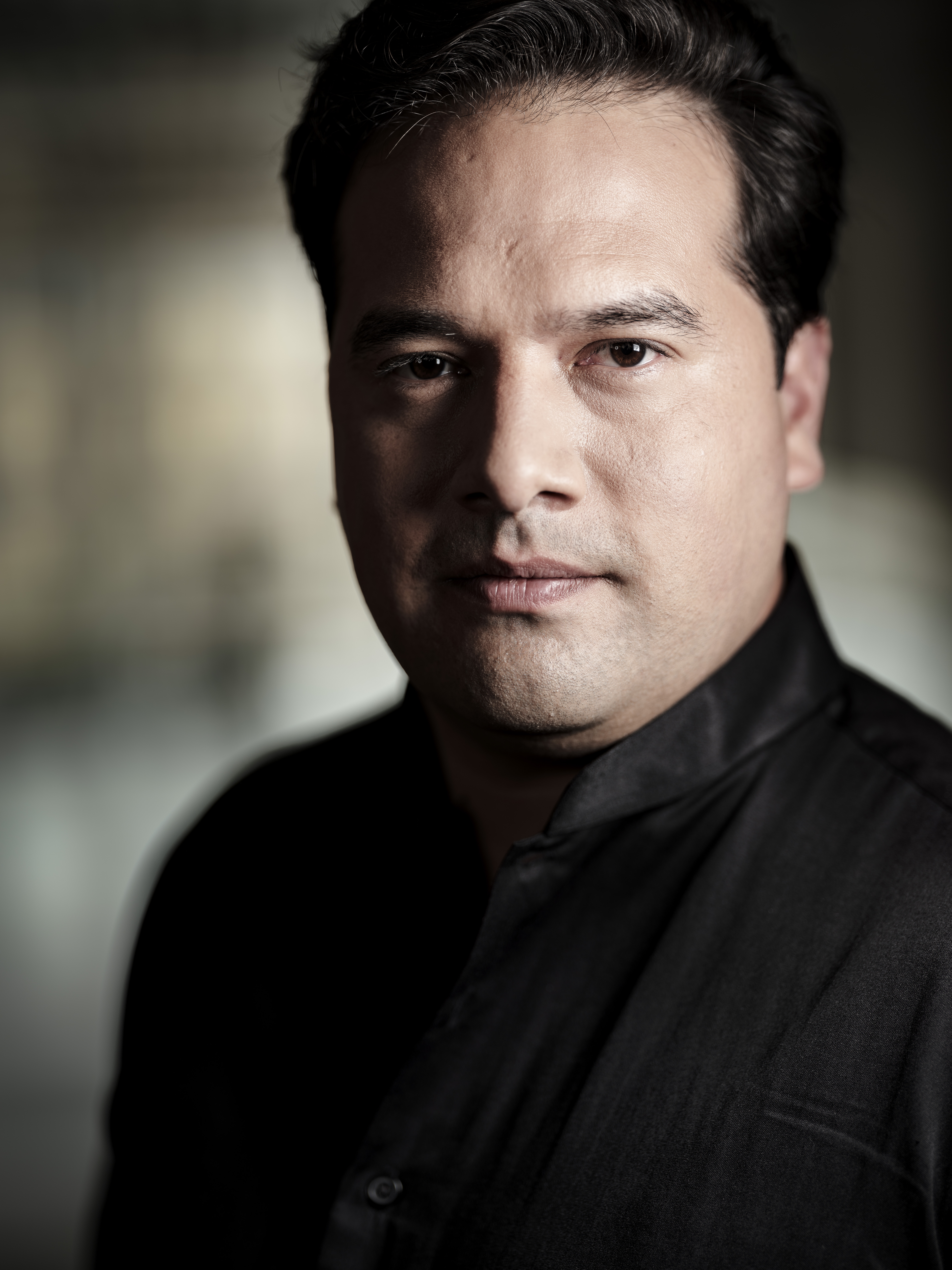Nicola Semple on putting together the ‘jigsaw’ of Two Moors Festival
Florence Lockheart
Wednesday, October 4, 2023
The festival general manager talks to Florence Lockheart about the ethos behind this year’s ‘home’ themed programme and how she and artistic director Tamsin Waley-Cohen have worked to preserve and expand the legacy of festival founders Penny and John Adie

Presenting concerts in the otherworldly landscapes of Dartmoor and Exmoor is not without its challenges but, as I find throughout my chat with Nicola Semple, general manager of Two Moors Festival which does just that, these limitations breed creative solutions, providing a framework within which to fit imaginative programming and unique performances.
This year’s festival, centred around the theme of ‘home’, promises concerts tackling the theme in an array of contexts – and in some interesting venues – along with a range of premieres, salons and opera.
You’ve been working in the arts management field since 2007 and took on the role of general manager of Two Moors Festival in 2021 – how does your experience in arts management support your work with the festival?
I have had worn both hats throughout my career. Under the Ikon Arts Management banner I ran Eaton Square Concerts, doing everything from administration to programming to moving chairs and selling programmes and I did the same with the London A Capella Festival.
"It’s a massive jigsaw"
This experience means I get to see the festival from both sides, which I think really helps everybody. With my artist manager hat on I am much more aware of what festivals need and I understand their limitations, but I also have a perspective which is a bit more in tune with what the artists want and need.
With Two Moors in particular we really look after our artists, and I think part of that is because I know what my artists would want when they go on tour, so that's what I'm providing to the artists that come to the festival.
 'The area we cover is quite huge... you need an army of volunteers and drivers to get people around.' © Clive Barda
'The area we cover is quite huge... you need an army of volunteers and drivers to get people around.' © Clive Barda
How do the Two Moors Festival’s audiences compare to the metropolitan audiences you’ve experienced at Eaton Square Concerts and the London A Cappella Festival?
They’re very, very different. The rural audiences are still quite traditional, they want the core classical repertoire that they know and sometimes they get a bit nervous about things that are more out-of-the-box or less familiar to them. I don’t think it’s quite as straightforward as saying, ‘They're old fashioned.’ A lot of it I think is to do with actual exposure. Whereas in London you're trying to think differently about classical music because that core repertoire is already familiar, in the Southwest that’s not the case.
"In every element of the programming there is this question of, ‘what is home and what does it mean?’"
Having said that, Two Moors Festival artistic director and violinist Tamsin Waley-Cohen is programming the festival with that core repertoire alongside other stuff that might not be as well known, hoping that our audience will start to trust her and experience things in a different way.
The Two Moors festival’s first leg in Dartmoor kicks off tomorrow, could you give us an idea of what audiences can expect from this year’s festival?
There’s a huge amount to look forward to. The theme of this year’s festival is ‘home’ and there are so many different meanings to that word. Tamsin has embraced each element in a different way, starting from the idea of classical music as being the ‘home of music’, with folk, jazz and everything in between being brought into that. That led to booking performers like the Maxwell Quartet who are coming to perform Haydn’s string quartets alongside their own arrangements of Scottish folk songs and The Swingles, who take anything from the whole spectrum of musical genres and make it their own.

 The Maxwell Quartet are set to perform Haydn’s string quartets alongside Scottish folk songs © Rich Watson
The Maxwell Quartet are set to perform Haydn’s string quartets alongside Scottish folk songs © Rich Watson
We’re also developing our ‘salon’ concept which we began last year with a performance at Great Fulford. This year we’ll return to Great Fulford with a Jazz Age concert, then on Exmoor we’re taking inspiration from the salon events Proust wrote about in Search For Lost Time as well as a concert the novelist put on at The Ritz in Paris for a musical programme interspersed with narrations from the book along with a French high tea.
We’ve got the world premiere of a new commission by Deborah Pritchard called Liberty as part of a whole programme including elements to reflect heritage of the performers, Ruby Hughes, Hugh Watkins, our artistic director Tamsin (as she's on maternity leave, Mathilde Milwidsky has very kindly stepped in to play the violin part) and Deborah’s partner Dave Neita who is a spoken word poet and human rights lawyer of Jamaican heritage.
"Whereas in London you're trying to think differently about classical music because that core repertoire is already familiar, in the Southwest that’s not the case"
The festival also embraces the idea of ‘home’ being family with a family concert of Poulenc’s The Story of Babar the Little Elephant. In every element of the programming there is this question of, ‘what is home and what does it mean?’ which I think is absolutely fascinating. That's all down to Tamsin and her amazing artistic vision, which is so exciting to work with.
As reflected in the name, the festival operates across two locations: Dartmoor and Exmoor. What sort of practical challenges does this cross-venue format present?
Dartmoor and Exmoor are huge areas on their own. Put them together and the area we cover is quite huge. From a practical point of view it's a lot of driving; getting volunteers and artists to and from stations, finding places for them to stay, getting to venues to do our health and safety checks. It's not quite as simple as come on the train, get off and walk to the venue, so you need an army of volunteers and drivers to get people around. There's also no phone signal!
We're sometimes restrained by the size of the available venues as well. It’s a massive jigsaw. Once Tamsin’s got her list of artists and an idea of how she wants to present them, we look at when they're available, then find a space big enough for their programme that’s available at the time the artists are and that dictates which moor is the focus of each weekend.
 Artistic director Tamsin Waley-Cohen explores each different meaning of the word 'home' in this year's festival programme (Image courtesy of Two Moors Festival)
Artistic director Tamsin Waley-Cohen explores each different meaning of the word 'home' in this year's festival programme (Image courtesy of Two Moors Festival)
John and Penny Adie founded the festival and ran it for 19 years until 2020. What is your advice to arts administrators in a similar position of continuing and honouring founding legacies of this kind?
It is incredibly important for us to continue the legacy of what John and Penny created because they built the festival out of nothing and now, over 20 years on, we have the opportunity to continue making it something that people want to come to. We’ve got a slightly different slant, but the festival is the same at its core.
When John and Penny ran it, the festival used to run over two weeks - one day you'd be in Exmoor, one day you’d be in Dartmoor. Tamsin has moved it into two weekends each focusing on a different area. This means that it can be become more of a destination festival that people can come to from all over the country and experience this exciting programming and the Moors themselves, these amazing natural spaces that can transport you to a completely different time and space.
The moors are like nowhere else. They're amazingly special places so to hear these incredible musicians of top international calibre in these really rural areas is incredibly special. With no phone signal, no distractions, you can experience the music in a whole different way without the noise of modern technology.
